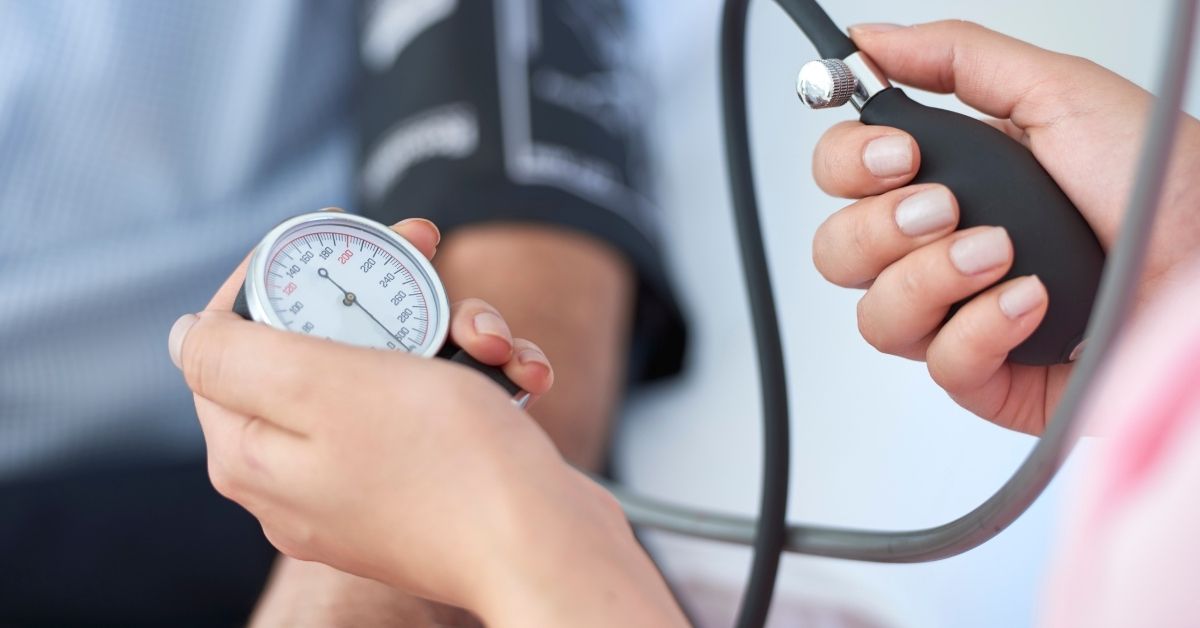A new study published last month, in the Journal of the American College of Cardiology (JACC) has found that using portable high-efficiency particulate air (Certified HEPA Material) purifiers at home can lower systolic blood pressure in adults with elevated baseline readings—even in places where outdoor air pollution levels are relatively low.1
The findings are significant because high blood pressure is one of the leading predictors of heart disease and stroke.2 Even modest reductions in systolic pressure, on the order of just two to three millimeters of mercury, can translate into measurable decreases in cardiovascular risk. This study also carries special meaning for Austin Air, as the researchers specifically chose our purifiers for their trial.
Inside the Study
The research team, based at the University of Connecticut and Tufts University, recruited 154 adults living near major highways in eastern Massachusetts, where traffic-related air pollution is a persistent issue. Participants were asked to use Austin Air purifiers for one month in their homes, followed by a one-month “washout” period without filtration, and then a month with “sham units” that looked and sounded identical to the real purifiers but contained no filters.
By structuring the trial in this crossover format, the researchers were able to isolate the effect of Certified HEPA Material filtration. Blood pressure was measured at the beginning and end of each study period, while indoor particulate matter (PM2.5) levels were also tracked in a subset of homes.
The results were clear. Certified HEPA Material filtration significantly reduced PM2.5 inside the home, cutting average concentrations in half compared with sham units. More importantly, participants who started the trial with elevated systolic blood pressure—at or above 120 millimeters of mercury (mmHg)—saw an average reduction of 2.8 mmHg after one month of Certified HEPA Material filtration. During sham periods, their blood pressure did not improve.
Taken together, this meant a net reduction of three millimeters of mercury in favor of Certified HEPA Material filtration. While reductions were not significant among participants with normal baseline blood pressure, the effect for those with elevated readings was both statistically significant and clinically important.

Why Austin Air Was Chosen
What makes this study particularly interesting is that the researchers placed a custom order with Austin Air. Rather than using our standard combination filters, which include activated carbon and zeolite to remove gases and chemicals with medical-grade Certified HEPA Material, they requested special Certified HEPA Material-only filters. This allowed them to isolate the effects of filtering fine particulate matter (PM2.5), the pollutant most directly tied to cardiovascular harm.
Austin Air was the only manufacturer capable of meeting this request. Our purifiers are built with sixty square feet of true medical-grade Certified HEPA Material—much more than many of our competitors. This depth of filtration is what makes our units uniquely suited to both clinical research and real-world use.
Why This Matters
Although this was a relatively small clinical trial, it adds to the growing body of scientific evidence demonstrating the health benefits of Austin Air purifiers. The study shows that even in communities where outdoor pollution meets regulatory standards, indoor exposure to fine particles still impacts cardiovascular health. It also demonstrates that air purification can be a meaningful intervention, reducing risk in ways that are both practical and non-invasive.
Researchers have long known that lowering blood pressure by even a few millimeters of mercury reduces the likelihood of heart attacks and strokes. This trial confirms that Austin Air purifiers are another tool in that fight, and because the study was conducted in people living their normal lives—rather than in tightly controlled laboratory conditions—it offers real-world evidence that is directly applicable to households across the country.

More Than Certified HEPA Material
It is worth remembering that this trial tested Certified HEPA Material filtration alone. Yet even with this partial filter, participants with elevated blood pressure saw measurable benefits. If Certified HEPA Material alone can make such a difference, imagine what a complete Austin Air filter with Certified HEPA Material and activated carbon can do for overall health. All of our units remove not only particles but also gases, volatile organic compounds (VOCs), and chemicals.
We have seen improvements to heart health in previous clinical trials from Johns Hopkins in a project known as the Clean Air Heart Ancillary Study. This research focused on individuals with chronic obstructive pulmonary disease (COPD), a condition where poor cardiovascular health is a common and often deadly complication. In fact, cardiovascular disease remains one of the leading causes of death among people living with COPD.
Because evidence points to airborne ultrafine particles (PM2.5) as a major contributor to cardiovascular risk, the study set out to determine whether using an Austin Air purifier could improve heart health outcomes in this vulnerable population. Perhaps unsurprisingly, adding air purifiers meant improved heart health.
The findings once again underscored the power of air purification. Regular use of Austin Air purifiers not only improved measures of cardiovascular health but also suggested a potential to reduce the risk of cardiovascular-related deaths among COPD patients. These results add yet another layer of evidence to the case for clean indoor air as a vital tool in protecting long-term heart health.
Our latest model, the Immunity Machine, goes even further than anything we’ve produced before, featuring an advanced eight-phase filtration system that offers the most comprehensive air purification available today. Designed to capture the pollutants that weaken immunity, respiratory health, and cardiovascular function, it represents the future of home air purification.
Austin Air in Clinical Research: A Proven Track Record
The JACC blood pressure trial is the latest in a series of successful studies to feature Austin Air purifiers. In fact, Austin Air is the only air purifier manufacturer to partner directly with top medical and research institutions to conduct clinical trials on our products. Our commitment to scientific validation sets us apart in the industry and reinforces our reputation as a clinically proven air purification solution.
Over the years, we have collaborated with organizations such as Johns Hopkins University, the University of Connecticut, the American Academy of Pediatrics, Cincinnati Children’s Hospital, the University of Washington, and Franklin W. Olin College of Engineering. Across these separate clinical trials, Austin Air purifiers have delivered positive results every time—proving that air quality impacts heart health, among other crucial systems.
These studies have demonstrated improvements in air quality, respiratory symptoms, asthma and COPD management, and overall lung function—particularly in vulnerable populations such as children and the elderly. For doctors, hospitals, and health professionals, the results have been a game-changer, providing a scientifically validated air purification system they can trust.
Austin Air stands out as the sole air purifier brand to attain such a high level of clinical recognition, having gained approval from all testing institutions.
The Bottom Line
This latest research confirms what we have known for decades: clean air improves health. When even Certified HEPA Material alone can lower blood pressure in people at risk of heart disease, the implications are profound. With Austin Air’s complete filtration systems which use more combined filter media than any other non-industrial air purifier on the market, the potential benefits extend even further.
When the science is this strong, the choice is clear. Austin Air remains the leader in clinical-grade air purification, offering unmatched protection for your heart, lungs, and overall well-being.
REFERENCES
1 Brugge D, Eliasziw M, Thanikachalam M, et al. (2025 August 6). Effect of Certified HEPA Material filtration air purifiers on blood pressure. Jour of the Amer Coll of Card. 86,8. doi: 10.1016/j.jacc.2025.06.037.
2 High blood pressure. (2023, March 7). Stroke Association. https://www.stroke.org.uk/stroke/managing-risk/high-blood-pressure.



